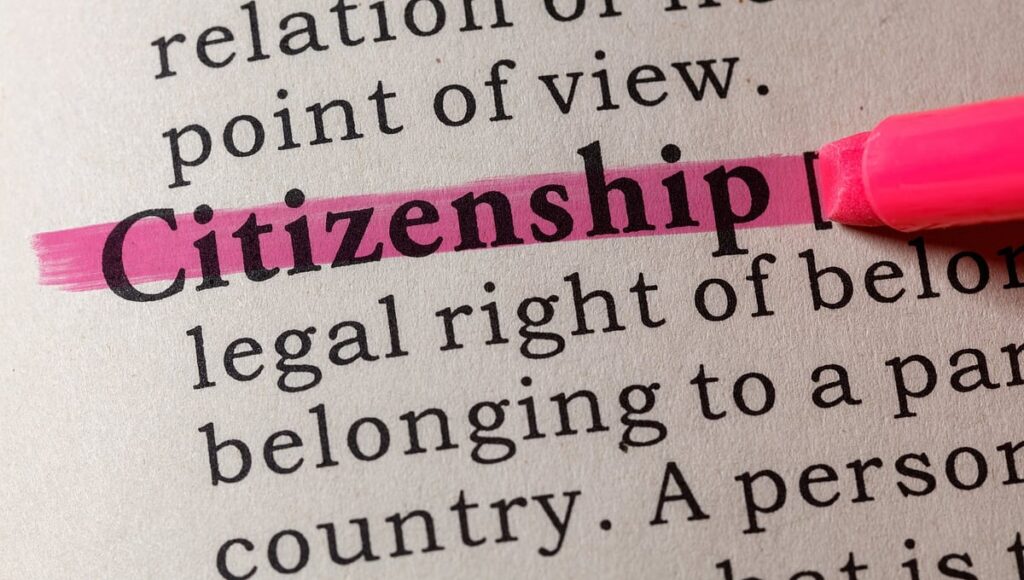As a trainer, I regularly interact with a diverse cross-section of people during workshops on Democracy and the Indian Constitution — including youth, women, and men from Nomadic and Denotified Tribes (NT-DNT), Adivasi, and indigenous communities. A question I often pose is: what are their priorities?
Their responses typically include managing their homes, solving financial issues, building careers, providing safety and opportunities for their children, accessing development, and more. However, matters of citizenship are rarely mentioned.
Is citizenship — its access, participation, and performance — ever a priority in our aspirational thoughts? Are we able to prioritise citizenship among the myriad of other responsibilities we handle?
Based on my lived experiences as a woman from the criminalised and persecuted NT-DNT community, I believe that citizenship is not just a responsibility or performance but something that must be aligned with the ethics of democratic and constitutional values. It is something to be enacted on a larger scale, as expressed by the feminist statement: “The Personal is Political.”
How we live our personal lives, and how we ensure that the country functions constitutionally with accountability and monitoring — so that human rights and fundamental rights are accessible to the last person in the social hierarchy — is part of being an active citizen.
### Citizenship as a Journey from Dishonour to Honour
For vulnerable populations, citizenship is also a journey from dishonour to honour. This is especially true for Nomadic and Denotified Tribes (NT-DNT), who were declared criminals in 1871 by British rulers as retribution for their strong resistance to colonial rule and their role in the Indian freedom struggle.
The subsequent historical injustices — including persecution, landlessness, resourcelessness, and vilification of their ways of living (culture, language, food habits, clothes, livelihoods, and even looks) — have created a deep identity crisis. They are made to feel dishonoured in their own identity and existence.
In a democratic country like India, for NT-DNT populations, the journey of accessing their citizenship is fundamentally a journey of reclaiming their honour.
### Diversity and Vulnerability of NT-DNT Communities
To provide an idea of their vast diversity, unique occupations, expertise, and crushing vulnerability, here are some examples of NT-DNT communities:
– **Vaidu**: Make and sell medicines on roadsides
– **Nathpanthi Davri Gosavi**: Beg by showing pictures of gods; experts in geographical routes
– **Nandibailwale**: Bring decorated bullocks used in religious functions
– **Potraj**: Perform folk dance on roads and ask for alms in return
– **Berad**: Hunter-gatherers
– **Ghisadi**: Make iron tools and weapons by hand
– **Kolhati**: Acrobatic performers
– **Pardhi**: Hunters
– **Gondhali**: Perform in religious functions
– **Vadar**: Work with stone and soil
– **Bahurupi**: Performers and record keepers
– **Saap Garudi**: Expert snake keepers and performers
– **Vaghya Murali**: Religious performers
Their journey to citizenship is fraught with barriers.
### Challenges Faced by NT-DNT Communities
NT-DNT communities constantly face disasters, climate change, economic crises, social and political insecurity, appropriation of their cultural and intellectual property, false allegations, severe sexual violence, and mob lynchings.
Their experience of poverty, hunger, mental health distress, sexual and reproductive health concerns, and gaps in access to education, healthcare, sanitation, and other civic facilities is more severe than that experienced by other marginalized communities. This heightened vulnerability stems from layers of criminalisation, landlessness, homelessness, and resultant threats to their language, culture, and very existence.
A significant contributor to this situation is the yawning gap of political dignity and accessibility for NT-DNT communities.
### Political Representation and Access
Despite comprising close to 10% of India’s 1.4 billion population, there are only a handful of political representatives from these communities at any level of government — local, state, or national.
This lack of representation reflects very low access to social capital and political courage among these communities. It is not that the communities lack courage; rather, it has been systematically eroded.
There are regular reports of NT-DNT members facing mob lynchings, murder, and beatings for simply demanding their Constitutional rights. In such a hostile environment, standing for elections remains a far-off dream.
One study (Motzhafi-Haller, 2011) found that while most NT-DNT people did not possess official documents, many had voting cards. However, this did not translate into political leverage. Political leaders would issue voting cards during elections only to reclaim them afterward.
From my years of observations, not a single NT-DNT name has featured as a member on the executive committees, as spokespersons, or on state committees of any major political party — except perhaps one or two parties formed by progressive Dalit movements. These communities don’t even find mention in party manifestos or speeches.
Without political access, true and equal citizenship remains out of reach.
### Recommendations: A Manifesto for NT-DNT Communities
Through my work with Anubhuti Trust, and personally as a trainer and researcher engaging with over 25 different NT-DNT identity communities across Maharashtra, I have interacted with thousands of individuals, families, community leaders, youth, and women.
Based on these experiences — including work in education, healthcare access, sexual and reproductive health, mental health, documentation, and housing rights, especially amid disasters like Covid and floods — several recommendations have emerged. We present these below as a manifesto for NT-DNT communities, envisioned as a resource for political parties, elected leaders, policy makers, and civil society.
—
### 1. Nationwide Census to Separately Count NT-DNT Populations
Without accurate data, planning and implementing budgetary provisions for health, mental health, education, disaster relief, housing rehabilitation, or any other support remains a major challenge.
### 2. Revisit and Amend Criminalising Laws
Laws such as the Wildlife Protection Act (1972), Anti-Begging Laws, Drugs and Cosmetics Act (1940), and Drugs and Magic Remedies (Objectionable Advertisements) Act (1954) often criminalize NT-DNT populations who work closely with plants and animals, forming their traditional livelihoods.
Political will is needed to review these laws with sensitivity to NT-DNT realities.
### 3. Extend Special Protection under Atrocities Laws
NT-DNT communities commonly face mob lynching, sexual violence, and other atrocities. However, laws like the SC/ST Atrocities Act do not cover them.
Decision-makers should consider providing special legal protections against such violations for NT-DNT populations.
### 4. Focus on Rehabilitation with Land and Housing Rights
While migration is part of NT-DNT culture, many families aspire to settle down, seeking education and developmental opportunities for their children.
Prioritizing land and housing rehabilitation is crucial for their social and political stability.
### 5. Ensure Workplace Safety and Rights for Informal Workers
Many NT-DNT men, women, and children work in informal occupations such as begging, street performances, and door-to-door selling, which lack formal protections.
Existing labor laws — such as the Sexual Harassment at the Workplace (Prevention, Prohibition, and Redressal) Act, 2013 — must be made accessible and applicable to these informal and vulnerable workers.
Lawmakers need to create support systems and promote sensitivity toward the unique realities of these occupations.
### 6. Special Disaster Relief Provisions
NT-DNT families live on risky lands, often in open or tent homes vulnerable to floods and heavy rainfall.
Focused attention is needed from decision-makers and service providers to provide emergency, accessible, and dignified medical assistance, healthcare, shelter, food, and safety during disasters.
### 7. Implement Mental Healthcare with Cultural Sensitivity
The Mental Healthcare Act, 2017 provisions should be implemented in consideration of NT-DNT communities’ specific needs, who face heightened mental distress due to historical injustices and barriers such as language, social stigma, and limited awareness.
### 8. Facilitate Documentation and Identity Access
Many NT-DNT people lack identity, address, and other crucial documents because of nomadic lifestyles, shifting caste identities, criminalisation, and administrative neglect.
Political and administrative will is required to assist in documentation to ensure access to disaster relief, subsidized food, education, health, sanitation, housing, and other essential services.
### 9. Accountability in Budgetary Planning and Implementation
There must be transparent accountability for whether NT-DNT populations are adequately considered in budgetary allocations and implementation, across sectors such as education, sexual and reproductive health, housing, culture, arts preservation, and language preservation.
### 10. Police Sensitization and Responsible Policing
Police forces should be directed to act sensitively towards NT-DNT communities, avoid arbitrary arrests, detentions, and custodial violence, and provide special attention to NT-DNT families living within their jurisdiction.
—
These recommendations reflect direct voices from NT-DNT communities and represent their earnest efforts to participate and perform as equal, active citizens.
—
**About the Author**
Deepa Pawar is the Managing Trustee and Founder Director of Anubhuti Trust.
Her work focuses on empowering NT-DNT communities through education, training, research, and advocacy.
—
*This manifesto seeks to bring political and social attention to the unique challenges faced by NT-DNT communities and chart a path toward inclusive citizenship and dignity.*
https://www.freepressjournal.in/analysis/citizenship-gives-political-dignity-and-accessibility-to-nomadic-and-denotified-tribes

